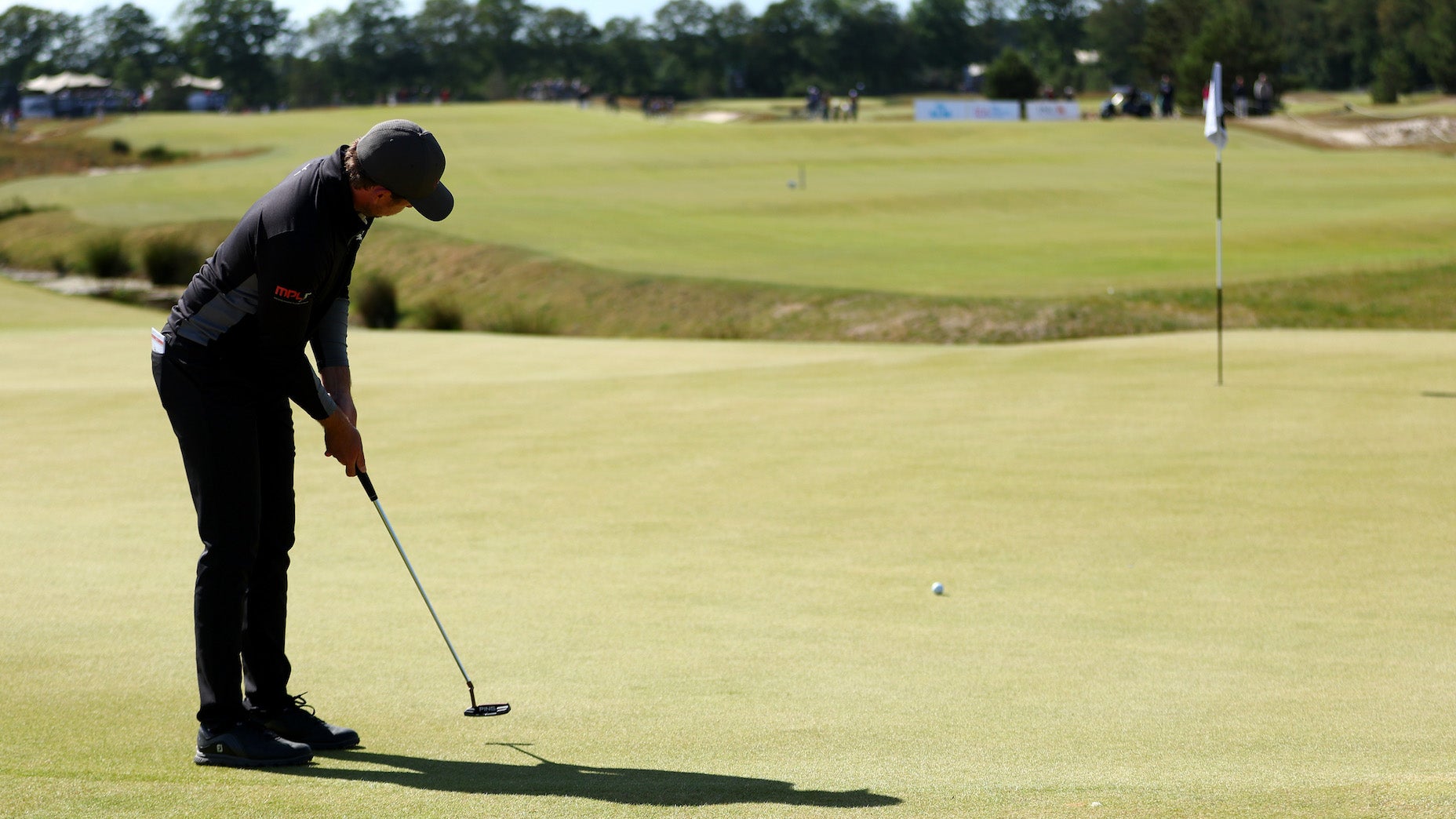There are few people in the world of golf like Eddie Pepperell. He’s unconventional, thoughtful and outspoken. He’s not afraid of wading into some of the most controversial topics of the day — from Covid to LIV and beyond — but is humble enough not to begrudge those whose opinions made differ.
It’s a confluence of qualities you rarely see at the top of professional sports, and it led to a fascinating appearance on the most recent Drop Zone podcast, hosted by my colleagues Dylan Dethier and Sean Zak. With Sean abroad in Scotland, Dylan manned the wide-ranging interview that left a lot to unpack. But some of the most interesting stuff came when Pepperell dived into his own golf game.
By his own admission, Pepperell has been struggling ever since the pandemic disrupted professional golf. That checks out: He was playing the best golf of his career in 2018 and 2019. He won twice on the DP World Tour, finished T6 at the 2018 Open, took third at the 2019 Players Championship and rose to No. 32 in the Official World Golf Ranking. But when the game’s various tours shut down, he figured taking six weeks away would be good for a lingering back injury. Instead it had the unintended side effect of changing his golf swing — and not for the better.
“It is technique,” he says of his golf swing. “I am in very different positions now than I was … Iron play is where the magic is in golf. It’s something I used to do really well, and it’s something I’m doing really poorly at times now.”
Ditching practice rounds
When things in his game started going south, Pepperell did what any motivated golfer would do: He started working harder. Though he’d always been a late arriver, he started showing up to tournaments on Mondays, or earlier, to play extra practice rounds. But after finding himself exhausted and stressed, without any results to show for it, he decided to forgo them altogether.
“If there’s a hole me or my caddie feel we really need to see i’ll go walk out there,” he says. “But it’s usually all out there, just hit the golf shots. Today I made a few bogeys with wedges and 9-irons, that’s not not knowing the golf hole. That’s just being s—.”
Pepperell says the biggest benefit to skipping practice rounds is that it “frees up his schedule,” so he can spend more time getting honing his game during those important tournament weeks. It also means that when he does get on site, he’s forced to be more efficient with how he prepares because he has less time to waste. The twofold effect of that means his overall play is sharper, which outweighs the benefits of spending more time getting to know the course.
“It doesn’t happen that often,” he says, when Dylan asks if there are times not knowing a course hurts his score. “You can know a golf course inside and out, but if you’re not heaving to hit the golf shots, forget about it.”
The strategy seems to be working: After a string of missed cuts, Pepperell now has two top-15 finishes in his last five starts (admittedly with some missed cuts in between). His T11 at last weekend’s Cazoo Classic marked his best finish since 2020.
Be sure to listen to the full episode below on Spotify, or on Apple Podcasts.

